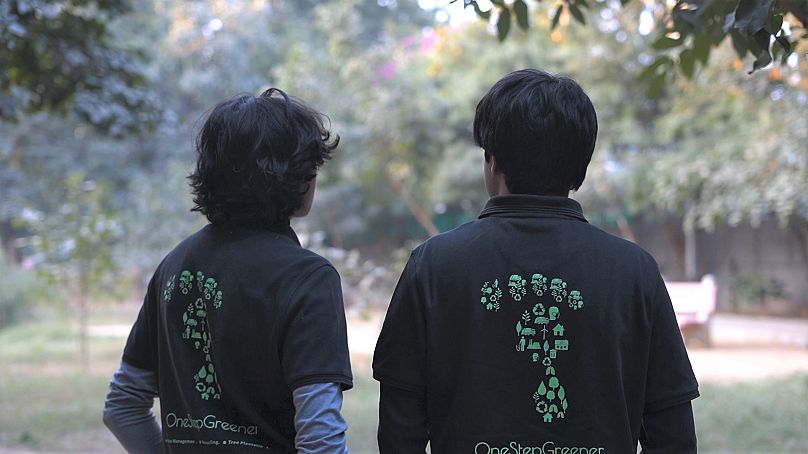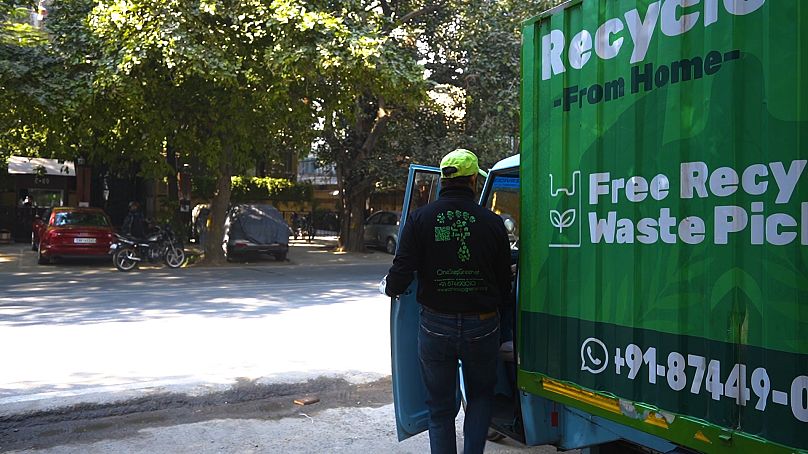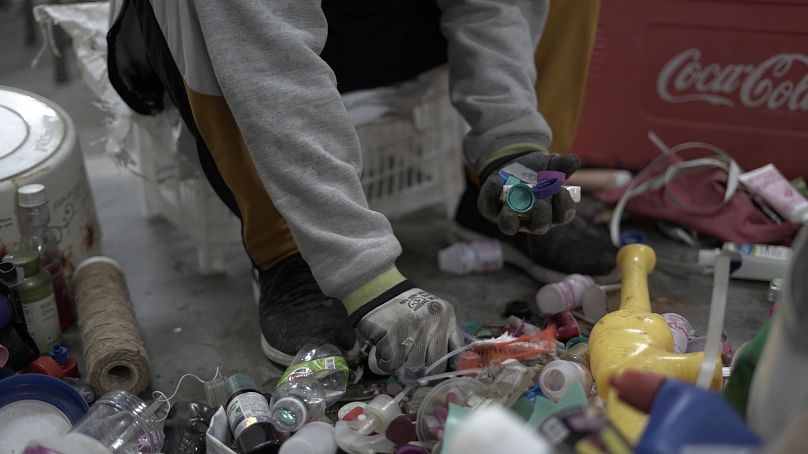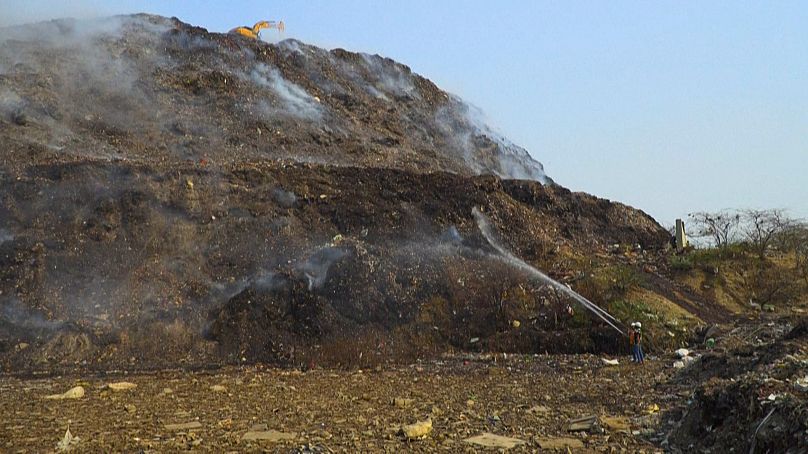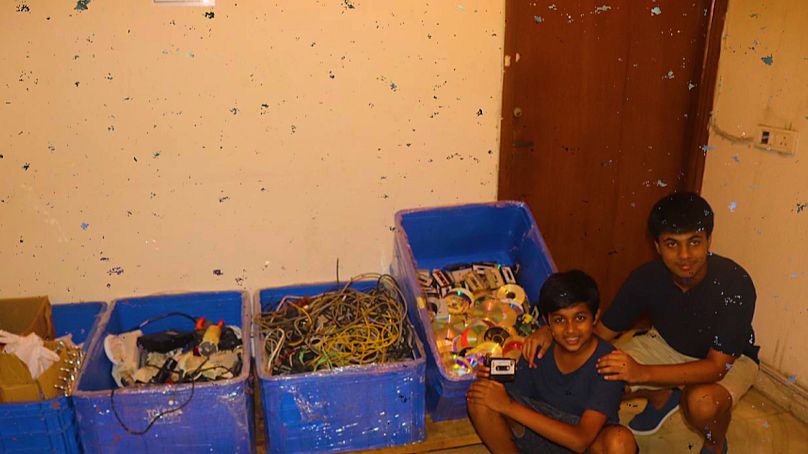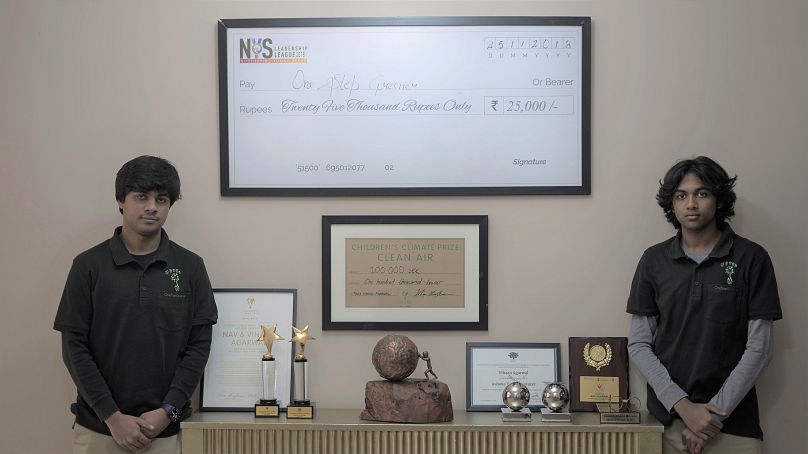In partnership with Media City Qatar
SCENES shines a spotlight on youth around the world that are breaking down barriers and creating change. The character-driven short films will inspire and amaze, as these young change-makers tell their remarkable stories.
 ADVERTISEMENT
ADVERTISEMENT
 ADVERTISEMENT
ADVERTISEMENT
Household trash is typically disposed of in three ways; buried in landfills, burned at incineration plants, or given new life through recycling. Without a doubt, recycling is the friendliest option for the environment and is universally accepted as good practice. The benefits of recycling waste material are well-publicised. Yet, only some recycle regularly or know how to do so correctly.
According to a recent report by the OECD, only nine per cent of the world's plastics are successfully recycled. The research shows that almost half of the plastics end up in landfills, and the rest is mismanaged or incinerated.
In India, two brothers have taken matters into their own hands and are seeking to improve recycling and waste management in the country's capital, New Delhi.
"Everybody thinks it's not their job. Or if the waste is out of their house, it's out of their mind," 16-year-old Nav Aggarwal tells SCENES.
A zero-waste future
As a result of their desire to see a change, the brothers founded the "brothers initiative for social change" OneStepGreener. The organisation strives towards a zero-waste future through education and social campaigns.
"We want everyone to think about the environment and recognise that this is a problem. That's half the battle," says elder brother Vihaan Aggarwal. "Now it's about implementation. It's about solutions," he adds.
OneStepGreener's core solutions revolve around waste management, which involves households sorting their waste into hazardous, wet, and dry categories.
"We have our own electric truck that goes from home to home, picks up people's dry segregated waste for free twice or thrice a month," Vihaan says.
Micro-segregation is key
Dry items, like bottles, cans, and paper, are collected and sorted into smaller groups. The brothers call this process micro-segregation.
"Paper is segregated into newspaper, shredded, and A4 size paper. Different types of wires, keyboards, monitors, and screens are kept separately because they go to different recyclers," says Vihaan. "Recyclers that recycle a mouse may not recycle a monitor," he explains.
The siblings say that micro-segregation is a crucial step to ensuring more items eventually get recycled. Items that recyclers cannot recycle may be discarded and end up in landfills.
The pile-up problem
Landfills are large spaces of land set aside to contain all types of trash. Modern landfills are lined and sealed with various materials to prevent odour and pests and reduce nearby soil and water contamination. They're equipped with sophisticated drainage systems to collect and treat hazardous byproducts. Some of these byproducts include toxic liquids and harmful gases that come from decomposing waste materials. When completely full, some are further sealed and covered with thick layers of dirt, allowing plants to grow on top. However, the reality is that most landfills are often left to decay, which is harmful to human health and the environment.
"All of them are overflowing. All of them are constantly on fire because of methane," says Vihaan. As a sufferer of bronchitis and asthma, Vihaan has a vested interest in preventing trash from landing in landfills.
Everything is connected
A news article about the Ghazipur landfill collapsing, catching fire and creating smog all over the city sparked an idea.
"When I read about that, a connection became very apparent to me. Which was the connection between my waste, which is going to this landfill, and air pollution, which is affecting my lungs," Vihaan explains.
Not wanting to feed the flames, Vihaan and Nav, who were 14 and 11 years old at the time, started segregating waste at home. Dry waste was stacking up in their house as the brothers struggled to find recyclers that would collect from only one household.
For recyclers to take them seriously, the brothers had to scale up. The boys asked their neighbours for dry waste via their mother's chat group.
"Within two days, we had 20 people sign up. Within a month and a half, we had 100 people," Vihaan recalls. They now collect recyclables from over 50 neighbourhoods in three Indian cities.
'We want this to go pan-India.'
"We want this to go pan-India," Nav says. "It's deeply satisfying to work with waste management, recycling, and just seeing the impact you have in the world. You're really working for the future. You're working so you can breathe another day with more clean air," he adds.
Aside from waste management, OneStepGreener also works to combat climate change by planting trees in urban areas. In 2019, they completed their first project, planting 300 native trees. Through the brothers' leadership, OneStepGreener is ever-expanding to include initiatives involving schools and other eco-education projects.












